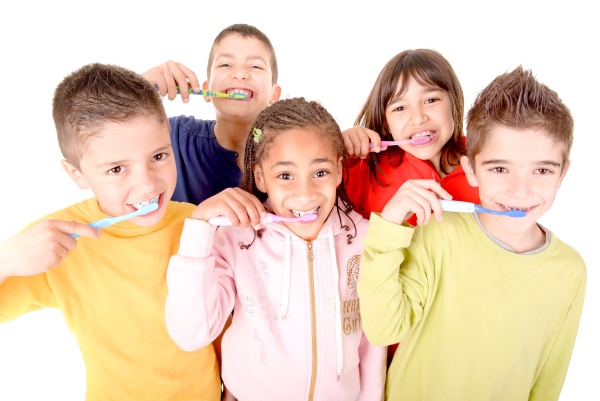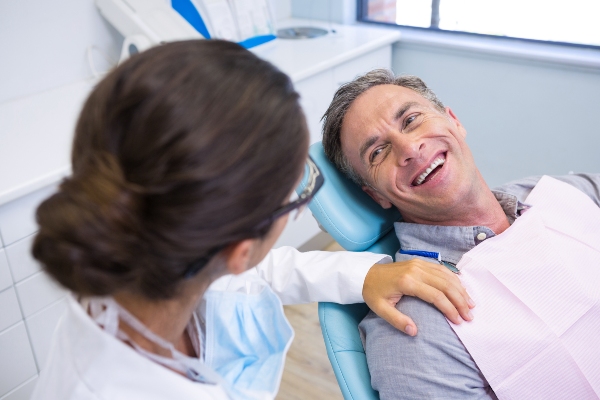A Pediatric Dentist Advises You to Start Early with Your Baby’s Dental Care

Do you want more information on the importance of a pediatric dentist? Your baby needs to be evaluated by a dentist by the time their first tooth appears. A dentist whose focus is pediatric dentistry knows exactly what to look for in a baby’s mouth to ensure that their overall oral health is in good shape. As soon as your baby’s first tooth appears, they are susceptible to cavities. Cavities are to be avoided as they can significantly jeopardize the health of your baby’s tooth. It is essential for you to be proactive in your child’s oral health care.
About pediatric dentistry
A pediatric dentist has undergone an additional two or three years of dental training after receiving their degree. This additional training allows them to understand the unique needs of infants, children and teenagers to ensure their oral health is always in great shape. They have also received training in treating children who have special needs and behavioral concerns.
A pediatric dentist makes a recommendation of behavior guidance methods for the child based upon health history, special health care needs, dental need and type of treatment required. They factor in the consequences of no treatment, emotional and intellectual development and parental preferences when deciding what to do.
How to care for your baby’s teeth and gums
The following list of information for parents will help you understand how to care for your child’s teeth's as well as understand the importance of early dental care.
Cleaning your baby’s gums
Wiping a baby’s gums needs to be done before their first tooth appears. You can use a soft, damp washcloth or gauze to clean the gums gently. This process helps to remove any milk or food that may be lingering in the mouth. These leftovers could encourage bacterial growth that could cause an infection and other issues.
Cleaning new teeth
Once your baby’s teeth start to grow in, you can use the same method for cleaning gums. The difference is that you also need to gently wipe over your child’s teeth. Baby teeth play an important role. They are the placeholders for your child’s adult teeth. Without proper care, they can decay and fall out. This can cause your child’s adult teeth to grow in crooked or misaligned.
When to use toothpaste
Once a baby reaches the age of 2 years old, you can use a small, soft-bristled toothbrush and toothpaste. The American Dental Association says children under 3 years old can use fluoride toothpaste. That said, be sure to check with your dentist as all children’s smiles are different.
When to see a pediatric dentist
As mentioned earlier, your child should see a dentist by the time their first tooth emerges. The American Academy of Pediatric Dentistry recommends children see the dentist by their first birthday. At the initial visit, the dentist can help establish an oral care routine for your baby. It also lets your child establish a relationship with the dentist. They will be used to letting this stranger care for their teeth as they grow up.
We are always happy to see new faces! If your child needs to see a pediatric dentist, call our office to schedule an appointment.
Request an appointment here: https://www.hvkidsmiles.com or call Hudson Valley Pediatric Dentistry at (845) 363-4177 for an appointment in our Middletown office.
Check out what others are saying about our services on Yelp: Read our Yelp reviews.
Recent Posts
Dental sealants are plastic coatings that protect teeth surfaces from decay. Since children are highly susceptible to cavities, pediatric dentists often recommend sealants to protect molars and premolars upon eruption. If you are considering this preventive treatment for your child, read on to learn more about the pros and cons of dental sealants.Tooth decay is…
Dental sealants safeguard the teeth against tooth decay by forming a barrier between bacterial plaque and the tooth enamel. The many tiny grooves on the surfaces of the back teeth may catch food particles. Since routine brushing cannot entirely remove them, they often stay there for an extended period. Cavities develop as a result of…
If a cavity develops and worsens, it could lead to the risk of a dental emergency due to an infection or severe discomfort. Dental sealants significantly reduce the risk of a dental emergency by helping to prevent cavities in vulnerable areas of teeth. Read on to learn how dental sealants can prevent a dental emergency…
Pediatric dentistry is a field of dental care that helps foster healthy oral habits in children and adolescents that can last a lifetime. By introducing young patients to regular dental care early on, these dental professionals and the patient's parents can set the foundation for strong, healthy teeth and gums. Here are five ways pediatric…


